Apr 2, 2024 12:59 PM
Saxophonist, Sonic Explorer Casey Benjamin Dies at 45
Casey Benjamin, the alto saxophonist, vocalist, keyboardist and producer who stamped his distinctive sounds on the…
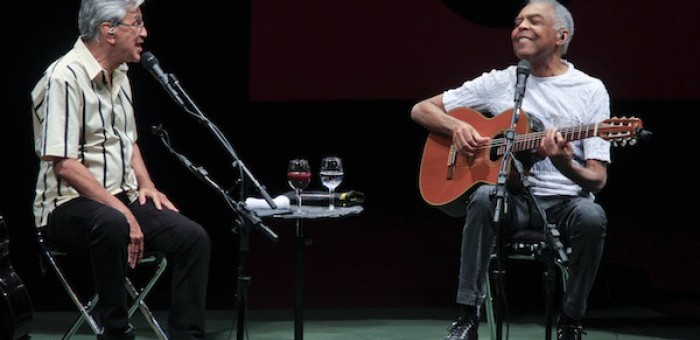
Caetano Veloso (left) and Gilberto Gil perform at the Brooklyn Academy of Music in New York on April 20.
(Photo: Rahav Segev/Brooklyn Academy of Music)When the curtain rose, revealing the two silver-haired gentlemen seated center-stage and already strumming their acoustic guitars, the audience, a roughly equal mix of Americans and Brazilians spanning all age groups, shouted in recognition. It was not unlike the way one might greet old friends at a class reunion.
In Brazil, the two men are more than merely huge stars. Caetano Veloso and Gilberto Gil, who have been friends since they met in 1963, are something akin to poets laureate in Brazil.
This was the second evening (April 21) of their two-night New York stand at the Brooklyn Academy of Music’s Gilman Opera House, part of a world tour that would take them to 21 countries, including U.S. stops in Los Angeles, Oakland and Miami. The BAM concerts had been sold out for weeks.
The Bahia natives, both 73, played 30 songs over the course of two hours, making the ornate, high-domed opera house as intimate as a living room.
The program covered much of their 50-year careers in a show titled “Dois Amigos, Um Século de Música.” The phrase—which translates as “Two Friends, A Century of Music”—is also the title of the duo’s live double album, which was released domestically by Nonesuch on April 8.
For much their lives, their careers intertwined. Leaders of Tropicália, a late 1960s movement that was both musical and political, each man reflected and influenced the course of Brazilian society. They began with sambas and bossa nova, then, influenced by Bob Dylan, The Beatles and Jimi Hendrix, their music became impressionistic, sometimes even psychedelic.
Their songs were often spiked with social commentary, rebelling against both the repressive authoritarian regime that ruled Brazil and some of the moral strictures associated with buttoned-up, Catholic-based culture. Their political music landed them in jail for a short time, followed by political exile in England, where they continued to write and record. When they were finally permitted to return to Brazil in 1972, they were bigger than ever.
Veloso’s style has no real analogue in America; imagine a cross between Dylan, Jacques Brel and Pablo Neruda, and you’d be roughly in the right ballpark. His lyrics are by turns political, sensual and metaphysical.
Gil’s music is both traditional and modern, combining regional, folkloric and urban styles of Brazil with American blues, pop, rock ’n’ roll and pan-African and Caribbean motifs. Veloso is more the sweet-voiced intellectual, Gil the earthy, multicultural, spiritual heart of Brazil. Their styles strongly complement each other.
Although Brazil is currently in political turmoil once again, the artists offered no commentary on the pending impeachment of the current president, Dilma Rousseff, preferring instead to let their songs do the talking.
Throughout the evening they alternated duets with solo performances, during which the other sat at rapt attention; sometimes Gil would tap out the rhythm to a Veloso song lightly on his guitar. They began with a duet of Gil’s “Back In Bahia,” one of his first hit singles upon returning from exile, the original electric boogie refined down to an appealing acoustic blues.
The first half of the evening emphasized Veloso’s songbook, including “Sampa,” (a nickname for São Paulo) and “Tropicália,” the song that gave the movement its name. On “Coração Vagabundo (Vagabond Heart),” one of Veloso’s biggest hits, the audience seemed thrilled to hear Gil’s voice singing the first verse instead of Veloso’s more delicate tenor.
By the end of “Terra (Earth),” one of Veloso’s most transcendent songs (inspired by the first photos of the earth from space), he led an audience sing-along on the final chorus, which translates roughly to “Earth, earth/ However distant/ The wandering navigator/ Who could ever forget you?”
For the slightly naughty Ary Barroso samba “É Luxo Só,” a male appreciation of a Brazilian woman dancing the samba (and one of the few selections not written by the artists), Veloso put down his guitar, stood up and shimmied to the sounds of Gil’s samba guitar intro—much to the audience’s delight. Veloso’s London exile song, “Nine Out Of Ten,” was sung in English. (He also sang moving love songs in Italian and Spanish, in addition to all the classics in Portuguese.)
On the Gil masterpiece “Eu Vim Da Bahia (I Came From Bahia),” the duo traded verses over Gil’s subtle, brilliant guitar accompaniment. On this tune and others, Gil truly was a one-man samba band. Other highlights of the Gil songbook were his hits “Expresso 2222” (named after a train), “Andar Com Fe (Walk With Faith)” and the haunting, virtuosic “Tres Palavras (Three Words).”
For an encore, the pair sang a duet of Veloso’s “Desde Que O Samba E Samba (From Samba Comes Samba),” one of the loveliest songs ever to come out of Brazil. Four more encores followed. The final one was Bob Marley’s “Three Little Birds,” with its refrain, “Don’t worry about a thing/ ’Cause every little thing is gonna be alright,” inspiring many audience members to sing along.
The soothing message, perhaps an oblique reference to the current sociopolitical tumult in both Brazil and America, echoed over the crowd like a benediction.
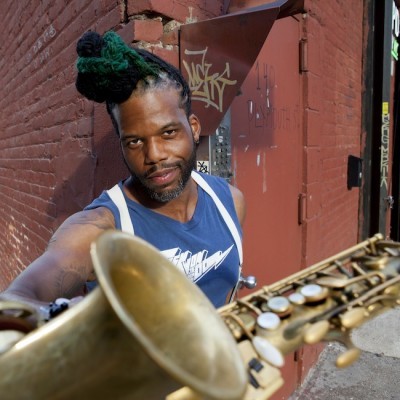
Benjamin possessed a fluid, round sound on the alto saxophone, and he was often most recognizable by the layers of electronic effects that he put onto the instrument.
Apr 2, 2024 12:59 PM
Casey Benjamin, the alto saxophonist, vocalist, keyboardist and producer who stamped his distinctive sounds on the…
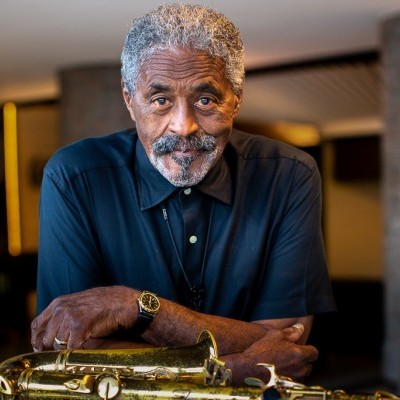
“He’s constructing intelligent musical sentences that connect seamlessly, which is the most important part of linear playing,” Charles McPherson said of alto saxophonist Sonny Red.
Feb 27, 2024 1:40 PM
“I might not have felt this way 30 to 40 years ago, but I’ve reached a point where I can hear value in what people…
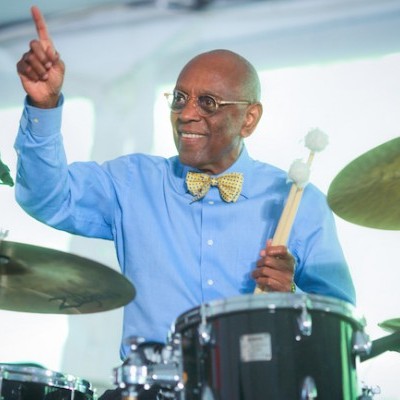
Albert “Tootie” Heath (1935–2024) followed in the tradition of drummer Kenny Clarke, his idol.
Apr 5, 2024 10:28 AM
Albert “Tootie” Heath, a drummer of impeccable taste and time who was the youngest of three jazz-legend brothers…
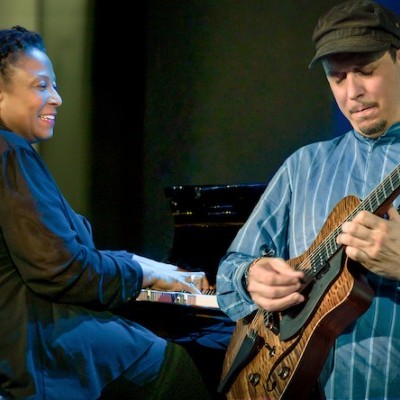
“Both of us are quite grounded in the craft, the tradition and the harmonic sense,” Rosenwinkel said of his experience playing with Allen. “Yet I felt we shared something mystical as well.”
Mar 12, 2024 11:42 AM
“There are a few musicians you hear where, as somebody once said, the molecules in the room change. Geri was one of…
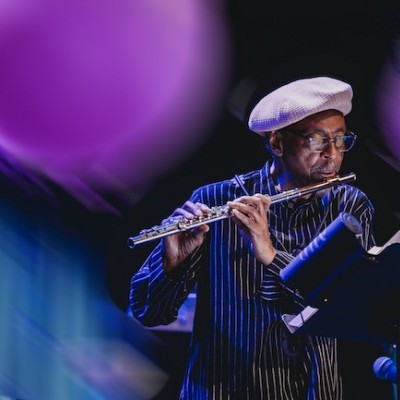
Henry Threadgill performs with Zooid at Big Ears in Knoxville, Tennessee.
Apr 9, 2024 11:30 AM
Big Ears, the annual four-day music celebration that first took place in 2009 in Knoxville, Tennessee, could well be…